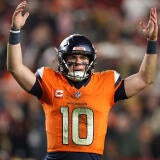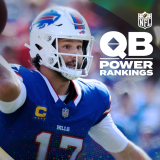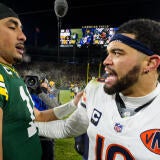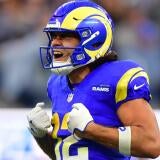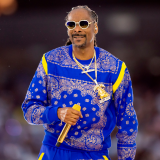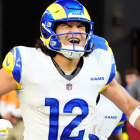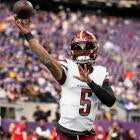America's Team: 30 facts about the Dallas Cowboys, Jerry Jones, Jimmy Johnson, and the memorable 1990s dynasty
The '90s Cowboys were one of a kind
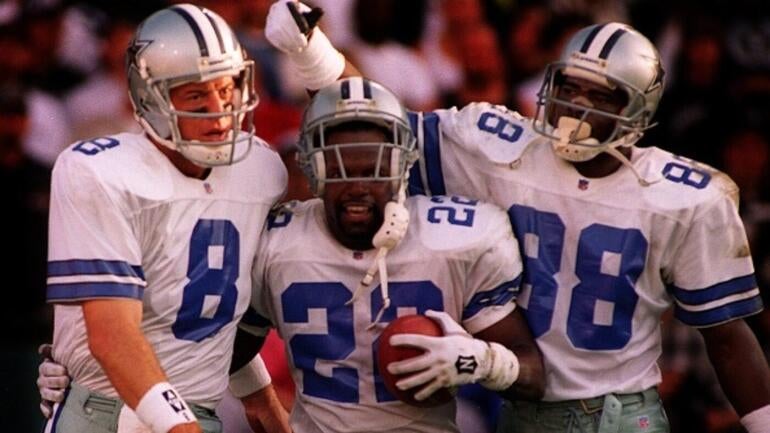
While there have been several dynasties in the NFL, the Dallas Cowboys' dynasty during the 1990s is truly one of a kind.
No NFL dynasty before or since has had the level of unending craziness that seemed to constantly hover over Jerry Jones' team. The truly crazy part is that much of the attention was welcomed and even embraced by the Cowboys' enigmatic owner and later general manager.
Despite constantly being under the microscope, the '90s Cowboys won, a lot. Their talent was simply unrivaled, and it allowed them to capture three Super Bowls over a four-year span. The Cowboys' success over that span increased an already massive brand and fan base that is nearly unmatched in the annals of professional sports.
But as meteoric as the Cowboys' rise was, the fall was just as steep. Egos, like most things in life, is what ultimately sunk the once mighty ship that was the Dallas Cowboys in the 1990s. The magnitude of said decline is still being felt as Dallas hasn't made it back to the big game since January of 1996.
With the 2025 season representing the 30th anniversary of their last Super Bowl team, here are 30 facts about the Cowboys' 1990s dynasty.
1. The 1990s Cowboys were the first team to win three Super Bowls in a four-year span. Dallas won the Super Bowl at the end of the 1992, 1993 and 1995 seasons. The 2000s Patriots are the only other team that has won three Super Bowls in four years.
2. The '92 Cowboys completed the quickest turnaround in NFL history. Dallas won Super Bowl XXVII three years after going 1-15.
3. The 1990s Cowboys boasted eight future Hall of Famers: Jerry Jones, coach Jimmy Johnson, QB Troy Aikman, RB Emmitt Smith, OL Larry Allen, WR Michael Irvin, DE Charles Haley, and CB Deion Sanders.
Dallas' offense featured a dominant offensive line that appropriately nicknamed, "The Great Wall of Dallas" that paved the way for the team's offensive success. The offense also featured five-time Pro Bowl tight end Jay Novacek and two-time Pro Bowl fullback Daryl Johnston.
Defensively, the Cowboys were led by Haley, three-time Pro Bowl linebacker Ken Norton Jr., safety James Washington, pass rushers Jim Jeffcoat (who retired with 102.5 career sacks) and Tony Tolbert, and three-time All-Pro safety Darren Woodson.
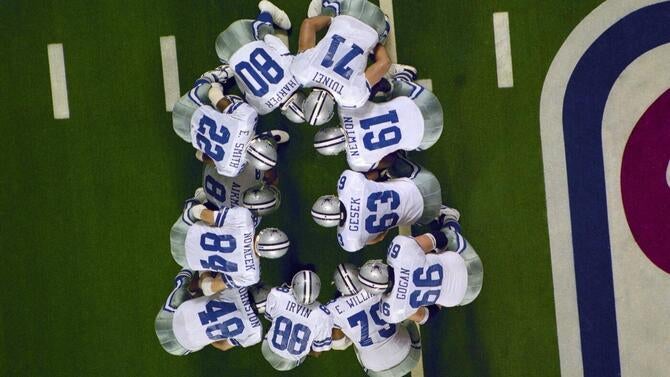
4. Jones admits that he was hung over after a night of partying with his family when he decided to pursue purchasing the Cowboys. Jones was vacationing in Mexico when he found out via a newspaper that the Cowboys were available for purchase. Jones, who built his fortune through the oil and gas industry, ultimately purchased the Cowboys and Texas Stadium in February of 1989 for a then-NFL franchise record $140 million. The Cowboys are now valued at $12.8 billion.
5. On his first full day as Cowboys owner, Jones famously fired legendary Cowboys coach Tom Landry on a golf course. Landry had just teed off on the eighth hole at the Hills of Lakeway Golf Course when his world was flipped upside down. The Cowboys' original coach, Landry had guided the franchise to two Super Bowl titles and five trips to the big game during the 1970s.
6. Ironically, the seeds of the Cowboys' dynasty were planted while the San Francisco 49ers were solidifying theirs. Jimmy Johnson, who at the time was the head coach of the Miami Hurricanes, sat in the Cowboys' luxury suite with team president Tex Schramm and Hall of Fame scout Gil Brandt during the 49ers' 20-16 win over the Bengals in Super Bowl XXIII, which was played in Miami.
According to Johnson's book, Schramm -- who was charged with selling the franchise -- wanted Johnson to start as the Cowboys' defensive coordinator before eventually replacing Landry. Prior to the game, Jones had asked Johnson to "put in a good word for me with Tex Schramm." Jones and Johnson, after all, had been college teammates on Arkansas' undefeated 1964 team. While they weren't necessarily close, the two had remained acquaintances over the next two-plus decades.
Johnson did put in a good word for Jones, whose plan all along was to hire Johnson to be the Cowboys' head coach. That's ultimately what happened after the two agreed that Jones would run the business and Johnson would run the football side.
"We'll make history," Jones told Johnson.
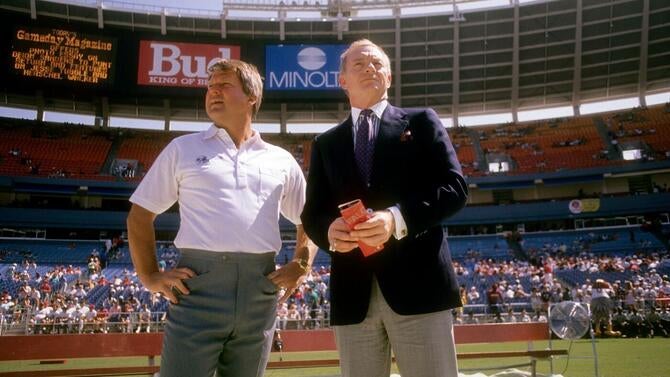
7. On the eve of becoming the Cowboys' owner, Jones decided to celebrate by taking his future head coach out to dinner at Mia's, a Mexican restaurant. Unbeknownst to either person, sportswriter Ivan Maisel was also having dinner at Mia's that night with his wife. That led to the famous photo of Jones and Johnson having dinner the night before the deal went down. Adding insult to injury for some unhappy Cowboys fans was the fact that Mia's was one of Landry's favorite restaurants.
8. Despite drafting Troy Aikman with the No. 1 overall pick, Johnson took his former college quarterback, Steve Walsh, with the first pick in the supplemental draft. While Aikman would eventually grow to have a deep appreciation for Johnson, he was leery of his new coach during his rookie season, a season that was nothing short of a disaster. Aikman went 0-11 as the Cowboys' starter that season, and Johnson struggled through a nightmarish 1-15 season.
9. The main takeaway from the Cowboys' 1989 season was Johnson pulling off the most famous trade in NFL history. Johnson dealt Pro Bowl running back Herschel Walker to the Minnesota Vikings (and several mid-round picks) and received a boat load of assets that included three future first- and second-round picks. The Vikings also sent the Cowboys four solid veterans, but Johnson released each one in order to acquire high draft picks.
Among the players the Cowboys acquired from the "The Great Train Robbery" include Emmitt Smith (third pick of the 1990 NFL Draft), defensive tackle Russell Maryland and defensive backs Kevin Smith and Darren Woodson. Each player played a significant role in each of the Cowboys' Super Bowl runs during the 1990s.
10. Trades were a huge part of the building of the Cowboys' dynasty. Dallas' 51 trades during Johnson's tenure was more than the rest of the league combined. In addition to simply valuing trades at a time when most of the league didn't, Johnson had an advantage over his peers with his creation of the draft trade value chart, a revolutionary tool that continues to be used today.
11. In 1990, Johnson became the first and only person in NFL history to win Coach of the Year despite his team posting a losing record that season. The Cowboys were a surprising 7-9 in 1990 and were in the playoff hunt until Aikman suffered a late season injury.
12. The '90s Cowboys won their first playoff game in 1991, defeating the Bears in Chicago in the first round of the NFC playoffs. The Cowboys' starting quarterback that day was Steve Beuerlein, who went 4-0 while filling in for an injured Aikman at the end of the regular season.
Despite Aikman being healthy and Beuerlein's mediocre performance against the Bears, Johnson didn't change quarterbacks the following week against the Lions, who steamrolled Dallas, 38-6, in a game that included Barry Sanders' dazzling 47-yard touchdown run that put the game on ice.
"BARRY THINGS"#Lions legend Barry Sanders plays hide-and-seek — a 47-yard scoring spectacular to close out the #Cowboys in the 1991 NFC Divisional at the Silverdome, 38-6.
— Kevin Gallagher (@KevG163) January 5, 2024
January 5, 1992 pic.twitter.com/22bu93zPgW
13. Johnson and Aikman's relationship started to improve when the two discovered that they shared a similar interest: fish. Johnson, who at the time had "three large saltwater tanks in my kitchen and four in the living room," helped Aikman select and construct a tank at his place over Heineken's that Johnson bought. That started a routine where the two would buy fish after Friday practices.
14. Johnson received an unexpected phone call just ahead of the 1992 season. It was from then-49ers general manager John McVay (the grandfather of Rams coach Sean McVay) who was calling to see if the Cowboys would be interested in Charles Haley, the immensely talented pass rusher who had run out his welcome in San Francisco.
Johnson had Jones call then-49ers owner Eddie DeBartolo Jr. to get more information on Haley. Specifically, Johnson wanted to know if Haley was smart, one of his main values in player acquisition.
While Haley proved to be an enigma as far as his personality, he was indeed smart. He was also, according to Johnson, the final piece in the Cowboys' championship puzzle. Making this trade even more notable is the fact that it included the team that Dallas would beat in the next two NFC title games.
15. The 1992 Cowboys were the NFL's youngest team, which is why many prognosticators felt that they were a year away from being a true title contender. That narrative quickly changed, however, when the Cowboys started the '92 season by beating Washington and the Giants, the last two Super Bowl champions.
16. The '92 Cowboys rolled through the regular season, winning a franchise record 13 regular season games. Per usual, Dallas' success was led by "The Triplets" of Aikman, Smith and Irvin. Aikman was third that season in passer rating. Smith led the NFL with 1,713 yards and 18 touchdown runs. Irvin finished second in the league with 1,396 receiving yards.
Dallas had six Pro Bowlers on offense, but none on defense despite allowing the fifth-fewest yards in the NFL during the regular season. Dallas' defense used that snub as motivation going into playoffs.

17. The Cowboys drubbed the Eagles in the divisional round before besting the 49ers in the NFC title game. One of the game's biggest plays was Aikman's 70-yard completion to Alvin Harper, who was lined up where Irvin had been up until that point.
Expecting a blitz, Aikman threw it to Harper, who was running backside down the middle of the field. Harper caught Aikman's pass in stride before screaming down the near sideline. His play set up the Cowboys' game-clinching touchdown.
After the win, Johnson finished his postgame speech by yelling his now famous line: "How 'bout them Cowboys!"
January 17, 1993
— Kevin Gallagher (@KevG163) January 17, 2025
° 1992 NFC CHAMPIONSHIP °
The #Cowboys and #49ers wage battle in the Candlestick swamp, renewing their storied postseason rivalry — the first of three consecutive NFC title game wars between the teams.
The #DallasCowboys win their then-unprecedented sixth NFC… pic.twitter.com/NWJF1CohNW
18. In their 52-17 win over the Bills in Super Bowl XXVII, the Cowboys set a Super Bowl record by forcing nine turnovers. Dallas would have also set the record for points scored in a Super Bowl had defensive lineman Leon Lett not fumbled just short of the goal line in what has become an iconic Super Bowl play.
Lett's fumble aside, it was still near flawless day for the Cowboys, who received an MVP performance from Troy Aikman, who shook off some early jitters to throw for 273 yards and four touchdowns on 22 of 30 passing. The Cowboys also received a dominant performance from their defense that included a pick-six and a momentum-changing goal line stand in the first half.
One of the craziest stats from this game: Aikman out-rushed Bills Hall of Fame running back Thurman Thomas, 28-19. The only player Dallas couldn't stop that day was Andre Reed, who caught eight passes for 152 yards.
.@TroyAikman's 4 touchdown passes that earned him @SuperBowl XXVII MVP honors! (Jan. 31, 1993)
— NFL Legacy (@NFLLegacy) November 27, 2019
⭐️ 23-yard TD to Jay Novacek
⭐️ 19-yard TD to @michaelirvin88
⭐️ 18-yard TD to @michaelirvin88
⭐️ 45-yard TD to Alvin Harper#BUFvsDAL: Thanksgiving Day at 4:30pm ET on CBS pic.twitter.com/I44si5xNLk
19. Smith, who rushed for 108 yards and a score against the Bills, became the first player to win a rushing title and a Super Bowl title in the same season. Smith, however, ran into a stalemate that offseason when he tried to come to terms on a new deal with Jones.
Smith was a restricted free agent and was hoping to land a deal that would be comparable to the NFL's highest-paid quarterbacks. He remained unsigned during the first two games of the 1993 season before Jones signed him to a deal that made him the NFL's highest-paid running back.
20. The '93 Cowboys were 0-2 without Smith. With him, they went 15-2 that included another win NFC title game win over the 49ers and another Super Bowl win over the Bills. Smith won both league and MVP honors despite missing the first two games. The Cowboys became the first team to win the Super Bowl after an 0-2 start.
Outside of the Super Bowl, Smith had two other memorable games that season: a career-best 237 yards in a win over the Eagles and his herculean performance during the Cowboys' 16-13 win over the Giants in a Week 17 game that determined which team would win the division. Smith tallied 229 total yards and a touchdown while playing with a separated shoulder.
Smith's best play was the lead draw, which is predicated on the center and guard blocking down on the defensive tackle, the fullback leading through the hole and Smith running to daylight.
"When we first got Emmitt, we tried to run him on sweeps, and he really wasn't a good sweep runner," Johnson once said. "He was more of an inside runner, so the lead draw was our bread and butter."
"It was definitely one of those plays where, we as players, when we called it, we expected something big to happen," Smith added. "It's the play that everybody tried to stop but couldn't figure out how to truly stop it."
21. Dallas' NFC title game win over the 49ers occurred after Johnson -- who was on his way to dinner with his then-girlfriend and current wife -- had called into a Dallas-area radio show and guaranteed that his team would beat San Francisco.
"We will win, and you can put it in three-inch headlines," Johnson proclaimed. "We will win the ballgame."
Smith wrote a pretty big check, one that his players cashed three days later after routing the 49ers, 38-21.
30 Years Ago Today
— Kevin Gallagher (@KevG163) January 23, 2024
The 1993 NFC Championship
"WE WILL WIN THE BALLGAME. And you can put it in three-inch headlines."
Head coach Jimmy Johnson delivers his victory guarantee, and his #Cowboys cash the check for their second consecutive NFC title over the #49ers, 38-21 — their… pic.twitter.com/a4mQH2VVVn
22. In the only true rematch in Super Bowl history, Dallas actually trailed Buffalo at halftime of Super Bowl XXVIII. But they scored 24 unanswered points in the second half that was spearheaded by James Washington's scoop and score off a Thurman Thomas fumble. The Cowboys' offense then embarked on an iconic eight-play drive that featured seven runs by Smith, whose 15-yard touchdown run that capped off the drive and gave Dallas the lead for good.
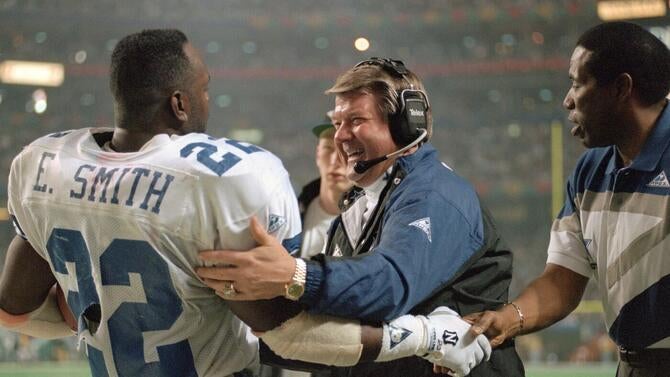
23. The biggest divorce in NFL history was announced on March 29, 1994, two months after the Cowboys became the fifth team to repeat as champion. Despite the possibility of being the first coach to win three straight Super Bowls, Johnson walked away from the Cowboys and a chance at football immortality.
Why did Johnson leave? Along with simply wanting a break from coaching, Johnson had grown tired of Jones and his desire to get involved in football-related matters. The last straw was when Jones, after getting angry at a perceived snub from Johnson and several other people at the NFL owners meetings, told several reporters: "There are five hundred coaches who could have won the Super Bowl with our team."
Johnson, who was incensed after hearing those comments, immediately confronted Jones, who apologized and blamed his quotes on having too much to drink.
"F--- you, Jerry," Johnson recalled telling Jones in his booth. "I don't care. Too much to drink or not. I'm f-----g out of here. I'm gone."
While Jones tried to get him to reconsider, Johnson's mind was made up for good when he saw Jones' "500 coaches" quotes on a newspaper headline. Johnson and Jones then came to an agreement on the remainder of Johnson's contract before the two broke the news to the assembled media.
Johnson and Jones have since reconciled in the decades since their historic fallout. Johnson actually presented Jones at his Hall of Fame ceremony in 2017. Johnson (who was inducted into the Hall of Fame in 2021) was finally inducted into the Cowboys Ring of Honor in 2023.
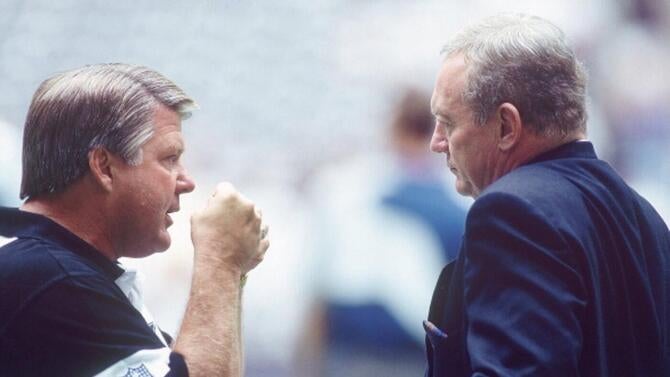
24. Jones surprised everyone by replacing Johnson with Barry Switzer, who served on Arkansas' coaching staff when Jones and Johnson were on the team. Switzer had enjoyed a legendary coaching career at Oklahoma, but he had been out of coaching for five years before he was tasked with leading Dallas to an unprecedented third straight Super Bowl win.
25. While some players embraced Switzer's laid back approach, many, especially Aikman, much preferred Johnson's coaching style that demanded hard work and accountability. But despite that discord, the Cowboys went 12-4 in 1994 and once again faced the 49ers for the right to go to the Super Bowl.
The Cowboys' three-peat bid ended, however, in San Francisco, as the 49ers parlayed an early 21-0 lead (that was largely the byproduct of three early Dallas turnovers) to a 38-28 win. Despite the loss, Aikman has said that that is the game that he is more proud of when he looks back on his NFL career.
No. 90: 1994 NFC Championship - Cowboys vs. 49ers (Jan. 15, 1995) #NFL100 @49ers
— NFL (@NFL) September 28, 2019
📺: NFL 100 Greatest Games on @NFLNetwork pic.twitter.com/E0DZijrKUt
While the Cowboys weren't able to get the three-peat, linebacker Ken Norton Jr. won his third straight title after signing with San Francisco as a free agent the previous offseason. Norton became the first player to win three straight Super Bowls.
26. The Cowboys lost several valuable players that offseason, including Pro Bowl center Mark Stepnoski, wideout Alvin Harper and safety James Washington. They did, however, make an historic splash by signing former 49ers cornerback and reigning NFL Defensive Player of the Year Deion Sanders to a seven-year deal that made him the highest-paid defensive player in league history.
27. The 1995 Cowboys are undoubtedly the most dysfunctional Super Bowl champion in history. It was their talent, guile and championship experience that allowed them to get back to the mountaintop despite constant bickering and in-house fighting from players and coaches alike. Among the Cowboys lowlights that season was an embarrassing loss at home to the 49ers, a controversial late-season loss in Philadelphia and being swept by Washington, who was coached by former Cowboys offensive coordinator Norv Turner.
One of the lone bright spots during the '95 regular season was Smith, who won his fourth rushing title while also scoring a then-single-season record 25 touchdowns on the ground.
28. After enduring a "December from Hell" (that included an all-time gaffe when the Cowboys were stopped twice on fourth-and-1 after running the same play in their loss to the Eagles), the Cowboys were revitalized on their way to their Week 17 showdown with Arizona upon hearing that the 49ers had lost to the Falcons, which meant that the Cowboys would claim the NFC's top seed if they defeated the Cardinals on "Monday Night Football."
With something significant to play for, the Cowboys dismantled the Cardinals while showing the form that had made them back-to-back Super Bowl champs. While it was a tough season, the Cowboys still went 12-4 and went into the playoffs with momentum.
29. It was the Packers, not the 49ers, who traveled to Dallas to face the Cowboys in that year's NFC title game after Green Bay -- who was led by league MVP Brett Favre -- upset the 49ers the previous week. Trailing 14-3, the Packers rallied and took a 27-24 lead after Favre threw his third touchdown of the game late in the third quarter.
The Cowboys, however, re-gained the lead on a touchdown run by Smith on their ensuing drive. They then put the game after Smith scored after Favre was picked off by cornerback Larry Brown.
January 14, 1996
— Kevin Gallagher (@KevG163) January 14, 2025
° 1995 NFC CHAMPIONSHIP °
Paced by "The Triplets" — Emmitt Smith, Michael Irvin, and Troy Aikman — the #DallasCowboys advance to their third Super Bowl in four years with a 38-27 victory over the Packers.
Trailing by three in the second quarter, the #Cowboys… pic.twitter.com/ALxJdLkwLp
30. Speaking of Brown, the former 12th round pick became one of the least expected MVPs in Super Bowl history when his two picks set up both of the Cowboys' second half touchdowns against the Steelers in Super Bowl XXX. Both of his interceptions occurred on passes by Pittsburgh quarterback Neil O'Donnell that were thrown directly at Brown with no receivers in sight.
Had it not been for Brown's picks, the Steelers would have probably pulled off the biggest Super Bowl upset since the Jets' shocking win over the Colts in Super Bowl III. Pittsburgh out-gained Dallas in the second half, while its defense had limited Smith to just nine rushing yards in the second half. Smith was the main beneficiary of Brown's picks as he parlayed both into short touchdown runs.
"If we don't turn the ball over, I think we win that game by at least two possessions," former Steelers linebacker Levon Kirkland told CBS Sports in 2022. "They took us a little lightly, until we were in the game, then it was like, 'Whoa, these guys can play with us.'"
Dallas' 27-17 win that day was the franchise's fifth Super Bowl win. It remains the Cowboys' most recent trip to the big game as well as the final moment of their dynasty during the 1990s.
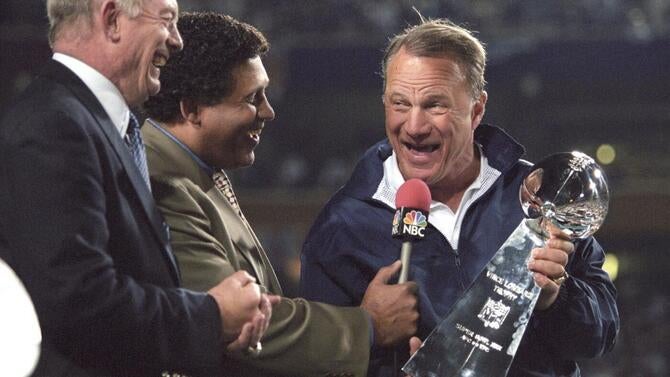
Aikman later said that, while the Cowboys won the Super Bowl in 1995, they weren't as good that year as they were in 1994, which wasn't as good as their '93 team.
It had been a few years coming, but the Cowboys didn't show any major signs of decline until 1996, when they went 10-6 before falling to the Carolina Panthers in the divisional round of the NFC playoffs. The wheels then came completely off in 1997, as Dallas limped to a 6-10 record.
Jones fired Switzer that offseason, and the Cowboys have been trying to rediscover their glory years ever since.


